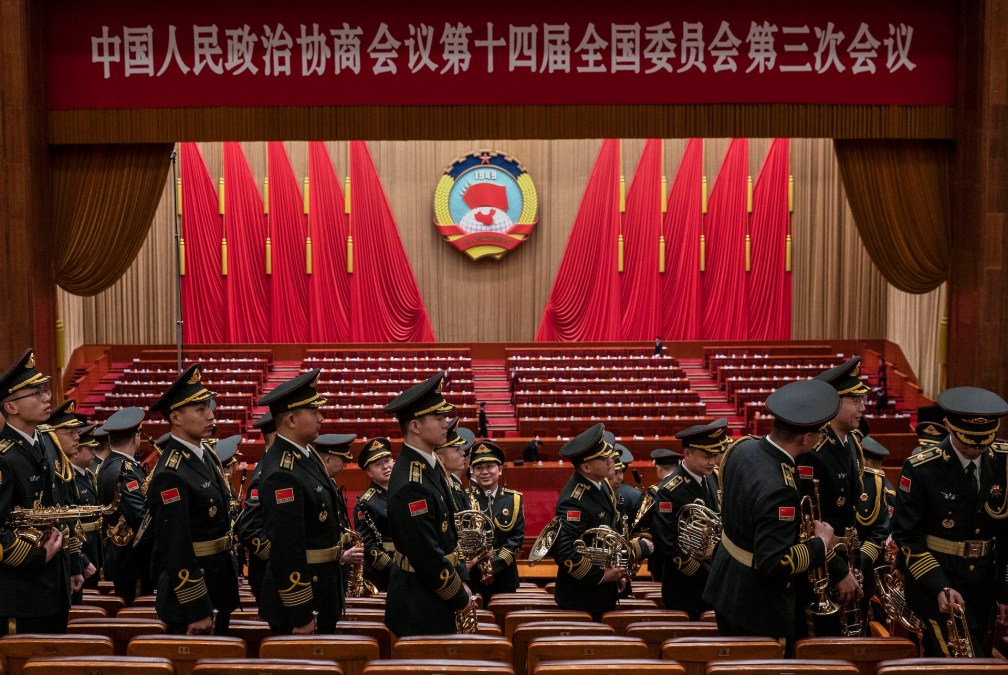Have you ever wondered how the intricate world of cybersecurity plays out on the global stage? Picture this: nations not only protecting their borders but also battling in the unseen realm of cyberspace. Recently, tensions whipped up between China and the United States over accusations of cyberattacks that allegedly exploited a serious vulnerability in Microsoft software. Let’s unpack the unfolding story and uncover what this means for international relations, cybersecurity policies, and even you.

This image is property of cyberscoop.com.
The Accusation from China
In a charged atmosphere of international rivalry, China’s accusations against U.S. intelligence have peaked interest and concern about cybersecurity practices. The Chinese authorities claim that U.S. agencies executed cyberattacks on two military enterprises that are crucial to their national defense. This revelation came to light through a statement from the Cyber Security Association of China.
What is a Zero-Day Vulnerability?
Before we dive deep into the accusations, it helps to understand the term “zero-day.” A zero-day vulnerability is a flaw in software that is not yet known to the vendor or the public. Hackers can exploit this undiscovered flaw, making it an attractive target for cybercriminals and intelligence agencies alike. In this specific case, a zero-day in Microsoft Exchange Mail served as the weapon of choice for alleged attacks.
The Timeline of Alleged Attacks
The cybersecurity struggle unfolded over an extended timeline, particularly from July 2022 to July 2023. According to China’s narrative, U.S. intelligence utilized this zero-day to gain unauthorized access to a major Chinese military enterprise’s mail server. This breach reportedly lasted nearly a year, during which important data was stolen.
The Second Cyberattack
The plot thickens with a second attack that occurred between July and November of the previous year. This time, the Chinese officials assert that U.S. agencies targeted a different military enterprise involved in communications and satellite internet sectors. To pull off this cyber heist, they reportedly exploited weaknesses in electronic file systems, leading to further information theft.
The Broader Context of Cybersecurity Tensions
While these latest claims may seem alarming, they aren’t isolated incidents. Cyberspace tensions between China and the United States have been escalating for years. Allegations of cyber espionage and hacking have become commonplace, fueling a cycle of blame and retaliatory rhetoric between the two nations.
Previous Incidents
For context, in December of the previous year, Beijing made multiple allegations linking U.S. intelligence to various cyber operations. This wasn’t merely a singular event; it was part of a broader narrative where the U.S. and China have accused each other repeatedly. Cybersecurity is increasingly becoming a battleground for national pride and sovereignty, and the growing volume of allegations signifies an ongoing war in the digital realm.
Accusations from the U.S.
On the flip side, U.S. cybersecurity organizations have also pointed fingers at China. Just recently, Microsoft accused Chinese hackers of exploiting zero-day vulnerabilities in its SharePoint product. This tit-for-tat exchange illustrates how each nation is intent on securing its interests while undermining the other in cyberspace.

This image is property of cyberscoop.com.
Implications for Cybersecurity Policies
The cycle of accusations has significant implications not only for the nations involved but also for cybersecurity policies globally. You may be wondering how this can affect you personally or within your organization. The rise in cyber tensions makes it essential for everyone—governments, businesses, and individuals alike—to understand the landscape.
The Need for Robust Cybersecurity
Considering the complex scenario, it becomes increasingly crucial for organizations to invest in robust cybersecurity measures. When high-profile entities like those linked to government activities are at risk, the ramifications extend down to small businesses and everyday users like you.
What Can Organizations Do?
In light of these developments, organizations should take proactive measures. Here are a few strategies that can enhance your cybersecurity framework:
| Strategy | Description |
|---|---|
| Employee Training | Regular training sessions on recognizing phishing attacks and potential security threats. |
| Software Updates | Keeping all software and operating systems updated to minimize vulnerabilities. |
| Security Audits | Conducting periodic security assessments to identify potential weaknesses and address them. |
| Incident Response Plan | Having a clear plan in place for responding to potential cyber incidents. |
| Threat Intelligence Sharing | Engaging in information-sharing initiatives with other organizations to stay updated on threats. |
National Cybersecurity Strategies
Both China and the U.S. have laid out strategies to fortify their cybersecurity frameworks amid rising tensions. Such moves resonate beyond national interests; they influence global norms around cyber conduct.
China’s Cybersecurity Measures
China views cybersecurity as a critical aspect of national security. The nation has ramped up investments in secure communications and has developed a robust framework intended to protect its digital border. Measures may include comprehensive laws that govern data privacy, increased surveillance, and the establishment of a national cybersecurity center.
U.S. Cybersecurity Strategy
Conversely, the U.S. takes a more collaborative approach. In recent years, agencies such as the Cybersecurity and Infrastructure Security Agency (CISA) have focused on working alongside private sectors, enhancing public-private partnerships. They also emphasize sharing vital information concerning threats to bolster defenses across the board.

This image is property of cyberscoop.com.
Cybersecurity as a Tool of War
These ongoing cyber skirmishes highlight the digital landscape as a new dimension of warfare. You may not have thought about cyber conflicts in this manner, but the strategic use of cyberspace for national objectives is becoming more pronounced.
Cyber Warfare Tactics
Cyber warfare tactics are diverse but generally classified into several categories. For instance, espionage allows nation-states to gather intelligence without deploying troops, while sabotage might disrupt critical infrastructure, causing chaos and instability. Should you consider what impacts these activities could have, think about the implications for data privacy, individual rights, and the economics surrounding cybersecurity solutions.
Conclusion
In an era where cyber relations dictate international affairs, the accusations flying between nations serve as a reminder of the vulnerabilities that threaten you and everyone else. Understanding the methods behind these cyberattacks, the existing vulnerabilities, and the broader implications make it clear that cybersecurity is everyone’s concern—whether you’re a business owner, a government employee, or an everyday internet user.
As you navigate these treacherous waters, take the necessary precautions to protect your digital life. Investing time in understanding cybersecurity can keep not just you, but the whole digital ecosystem safer. The battle may be complex, but together, awareness and proactive measures can certainly help shield you from the unseen enemies lurking in cyberspace.